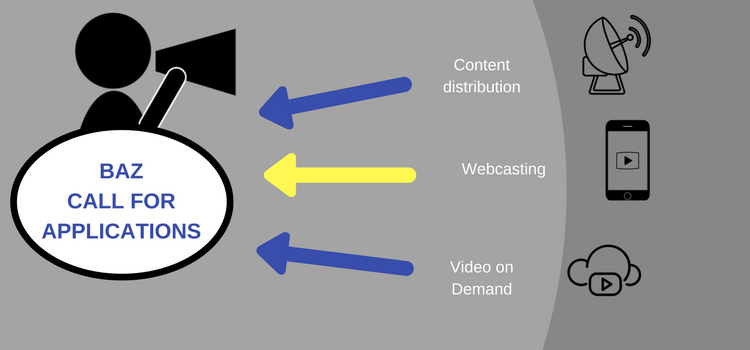MISA Zimbabwe is greatly concerned with government’s sincerity to boost local content production following the call by the Broadcasting Authority of Zimbabwe (BAZ) on 21 January 2018 seeking to license broadcasting services providers who do not require the allocation of broadcasting frequencies.
Who may apply?
The services listed by BAZ as eligible to apply are outlined in the 2004 Licencing and Content Regulations made in terms of the Broadcasting Services Act (BSA), which also contain the licencing fees for each service.
These include:
A content distribution service is a satellite transmitted service providing content aggregated within or outside Zimbabwe, with or without payment of a subscription fee. A content distributor is, therefore, a person who provides a content distribution service.
A video on-demand service is a service through which video or audio content is made available on request of a subscriber. Depending on the service, availability can be based on or may not have a subscription fee that may ensure access to a single or multiple service including the on-demand service.
For example a number of Zimbabweans access Netflix which has various programmes stored without any pre-determined schedule or sequencing on how the programmes are viewed.
A webcasting services is one that enables live or on-demand webcasts, or broadcasting of live video feeds. In Zimbabwe we see this through Facebook Live broadcasts, localised by the likes of Ruvheneko, CITEZW and ZIMDITV.
Concerns
MISA Zimbabwe’s concerns arise from the fact that the call seems targeted at local online content producers and distributors. In the past two years, Zimbabwe has seen an increase in the production and distribution of online content aided by an increase in internet access in the country.
All the services outlined in the call are services which consumers usually access via online video streaming.
According to the Postal and Telecommunications Regulatory Authority of Zimbabwe (POTRAZ), active internet subscriptions in Zimbabwe currently stand at 6.7 million. This viewed against the mobile penetration rate of 49.5 percent gives an indication on the extent to which these broadcasts are accessed by Zimbabweans as alternatives to the mainstream broadcasting sector.
Zimbabwe’s broadcasting sector has remained controlled and partisan to the exclusion of divergent views to that of the ruling elite.
Jurisdictional Issues
It will be interesting to see how the Act and Regulations will interpret webcasting services or facilities which are hosted on social media platforms such as Facebook via its Facebook Live feature and Twitter’s Periscope feature. This should be viewed in the context of Section 11(2) which states that only licenced broadcasting services shall be made available through a webcasting service.
It remains to be seen if this means Facebook, Twitter and all the other webcasting service providers will have to get some sort of licence before launching their products within Zimbabwe.
Digital Rights
Alternative broadcasts have opened up varying opinions on the socio-economic and political environment. Furthermore, and in the instance of live webcasting services, not only are issues openly debated, but citizens freely engage through commentary on the issues raised. MISA Zimbababwe sees this as an attempt to curtail free expression online, and access to the various opinions that enable Zimbabweans to participate in any national processes or discourse from an informed point of view. This goes against the African Declaration of Internet Rights and Freedoms.
Contradictions
In respect of the licensing of content producers, there are contradictions on the sincerity of the government in boosting and promoting local content in the country. A good part of the country’s preparation for the digital migration process has been hinged on the ‘command content production’ drive in order to boost content production.
In recognition of the fact that the industry needs a boost, government even committed funds to assisting in the production of that content. However, the licensing fees stipulated for the licensing tells a different story.
The licensing fees for a content distribution service, as with those for a video on demand and webcasting service, stand at non-refundable application fee of $2 500.00. In addition to that, a webcasting server facility or content provider’s basic 1 year licence costs $6,000 per annum. This is in contradiction to government’s pledges to not only promote local content in Zimbabwe, but also break the monopoly in the broadcasting sector.
Based on the requirements of Section 10(3) of the BSA, which mandates applicants to publish an announcement within seven days of submission, two have so far been published. Powertel has applied for video on demand license and Econet Media trading as Kwese, applied for all classes.
Conclusion
Based on the two applicants (Powertel and Econet Media) so far, it is clear that the licensing fees remain restrictive and will largely be affordable by large telecommunications companies that already dominate the industry thereby maintaining an oligarchy media structure.
End









